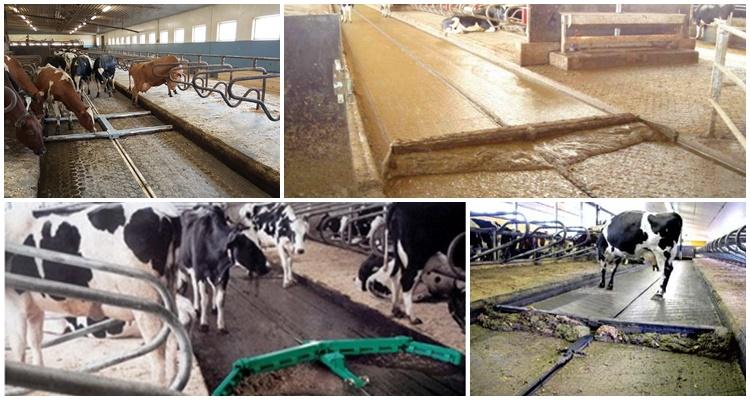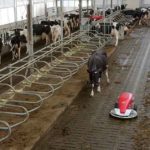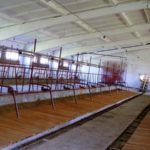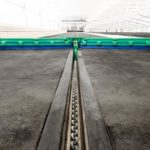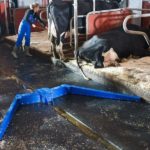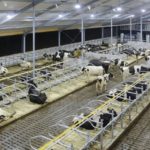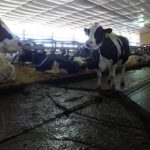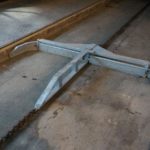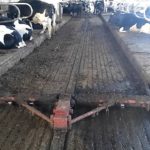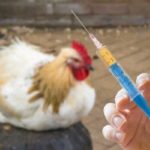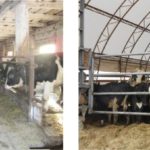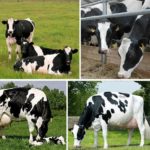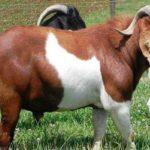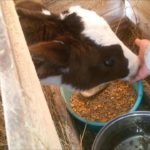Proper organization of manure removal in barns is necessary to maintain sanitary standards. The high-quality work of the staff ensures the functionality of the entire agricultural complex. The health of livestock should be given great importance. Therefore, barns are equipped with devices for cleaning, collecting, and removing animal waste. The construction of manure storage facilities near barns makes this task easier.
The meaning of manure removal
Cattle are kept completely clean. Cleaning of base areas is carried out regularly.Storage areas must also be cleaned regularly. Sewage accumulates rapidly, so cleaning cannot be started.
Unsanitary conditions increase the risk of infectious diseases in both livestock and people. Cleaning the premises improves the microclimate. Cleaning helps reduce the level of ammonia and nitrogen in the air. To avoid such problems, farmers equip barns with a manure removal system.
Human waste is used as fertilizer. Manure contains nitrogen, phosphorus, and potassium, which enrich the soil. For the agricultural complex this brings additional profit. The following forms of waste exist:
- Liquid.
- Liquid fraction after separation.
- Solid fraction after separation.
- Litter.
- Influent.
Cleansing includes the following operations:
- Delete.
- Transportation.
- Recycling.
- Storage.
- Usage.
Cleaning premises manually is not effective and leads to huge labor costs. Automatic devices perform the work efficiently and quickly. Which cleaning system is best suited for the complex depends on the size of the barn.
Methods for cleaning premises
Farms use mechanical and hydraulic manure removal devices. Suitable equipment is selected according to the way the animals are kept. The choice also depends on the area of the room.
Self-alloying systems
The self-alloying method of harvesting is classified as hydraulic equipment. To do this, use pipe-channels that have a slippery coating. The manure slides down the natural slope that forms in the pipe. The pipe-channel is filled with water, and the slurry flows through it to the manure collector.Devices can be continuous or intermittent.
Hydraulically flushed equipment
The system consists of a water tank, a water channel, a closed grille, and a damper that limits the access of feces outside the channel. On the opposite side there is a container for collecting waste. Manure seeps through the cracks. Strong water pressure washes it away. The hydroflush uses a huge amount of water, which increases the humidity in the barn.
Conveyor based machines
The conveyor can be chain or auger. The chain operator works in tie barns, removes manure from the bedding and loads it onto transport. The horizontal part of the device is used to clean the manure channel, and the inclined part is used to load waste into the machine. The system serves more than 100 stalls. The auger conveyor moves the manure into the manure storage tank. The device can be longitudinal or transverse.
Delta scraper equipment
The system collects manure using open scrapers. The equipment operates in open passages and is safe for animals. The scraper consists of four parts. The reciprocating movements of the scraper clean out manure throughout the entire area, including the entire room and hard-to-reach corners.
Manure processing
Large agricultural complexes containing large numbers of cattle provide constant collection of animal waste. After this, the manure must be processed for further use. To do this, liquid and solid particles are separated. The liquid fraction is used as a fertilizer for watering the plant, thanks to the nitrogen, potassium and phosphorus it contains. This avoids the use of chemical fertilizers.
In barns, systems are used that mix manure, grind solid fractions using a submersible pump, and squeeze out the liquid fraction with a separator.
Nutrients and beneficial microelements are additionally added to the resulting mixture. The manure storage tank stores raw materials until the moment of use. Solid waste is used for composting. The solid fraction is processed into bedding for animals in the barn.
With proper cleaning of the premises, the environment is not polluted, and the productivity of cattle remains normal.There is no threat to the health of the animals.

